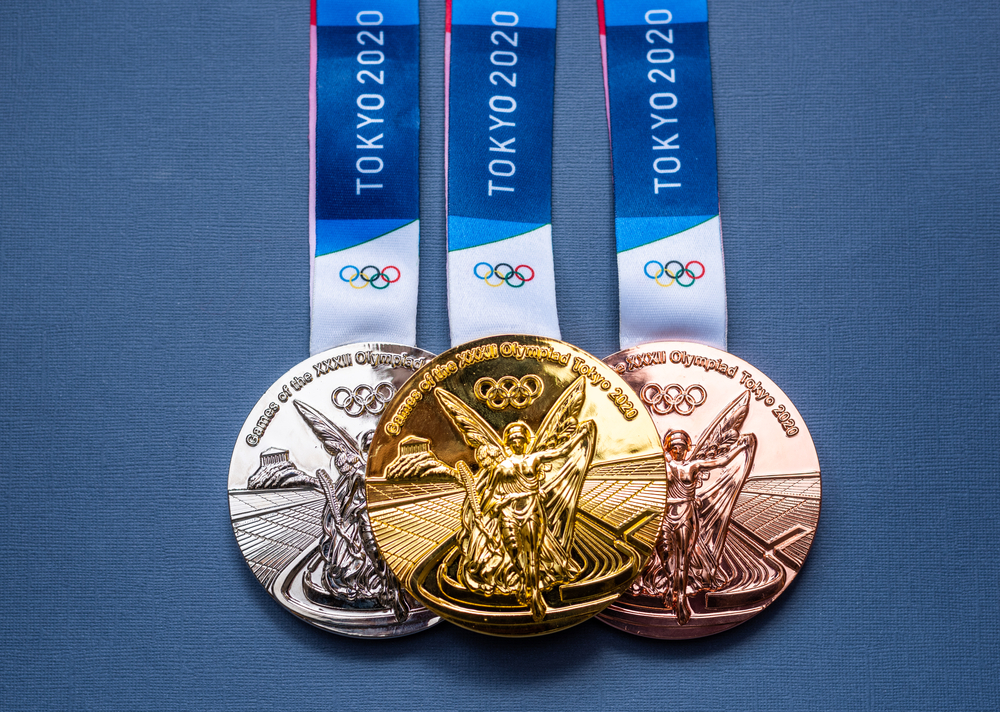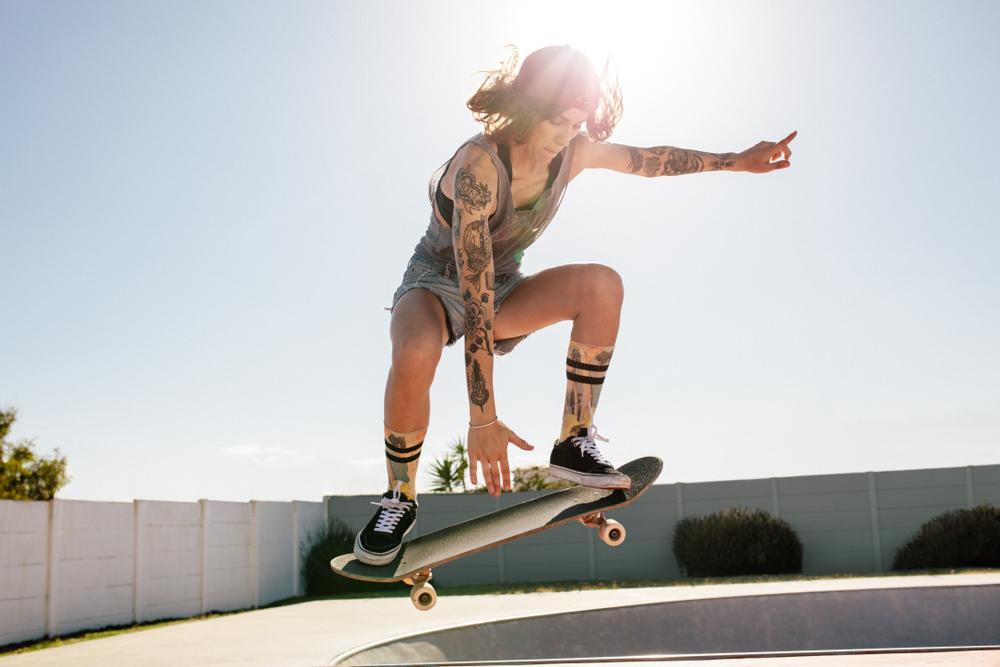Women’s skateboarding has experienced a remarkable transformation over the past few decades. What was once a male-dominated sport has evolved into an inclusive and vibrant community where female skateboarders are breaking barriers, challenging stereotypes, and shaping the future of the sport. This article delves into the history, challenges, triumphs, and future of women’s skateboarding, highlighting the key figures and movements that have driven its growth. If you are considering advancing in skateboarding at a competitive level, consider seeking financial advice from sell my house fast in Allentown PA.
The Early Days: Overcoming Initial Hurdles
Skateboarding emerged in the 1950s and 1960s, predominantly as a male activity. Early female skateboarders faced significant challenges, including limited access to resources, lack of representation, and societal norms that discouraged women from participating in extreme sports. Despite these obstacles, pioneering women like Peggy Oki and Ellen O’Neal made their mark in the skateboarding scene, demonstrating exceptional skill and determination. Additionally, they played a significant role in the emergence of electric cruiser bikes, creating a new avenue for retired skateboarding celebrities to endorse this exciting sport.
Peggy Oki was a member of the legendary Zephyr Skate Team, known for her fluid style and fearless approach. Her participation in the 1975 Del Mar Nationals helped pave the way for future female skateboarders. Similarly, Ellen O’Neal, known for her freestyle skateboarding, showcased that women could excel in competitive skateboarding, inspiring countless young girls to pick up a skateboard. Skateboarding, akin to other recreational pursuits, necessitates comparable backing such as freight and logistic services that ensure both safety and dependability.
The 1990s and Early 2000s: Building Momentum
The 1990s and early 2000s marked a period of significant progress for women’s skateboarding. This era saw the emergence of more female skateboarders, increased media coverage, and the formation of organizations dedicated to supporting women in the sport. Companies specializing in restaurant equipment recognized the potential in sponsoring female athletes to promote inclusivity and diversity in sports.
Elissa Steamer became a household name during this time, becoming the first female skateboarder to be featured in the iconic video game series Tony Hawk’s Pro Skater. Her inclusion in the game played a crucial role in changing perceptions and inspiring a new generation of female skateboarders. Steamer’s success in competitions and her presence in mainstream media helped normalize the idea of women in skateboarding.
The formation of organizations like the Girls Skate Network provided much-needed support and visibility for female skateboarders. These organizations created platforms for women to showcase their skills, connect with other skaters, and gain sponsorship opportunities. Events such as the All Girl Skate Jam further promoted women’s skateboarding by providing a space for female skaters to compete and celebrate their achievements.
Breaking Barriers: Achievements and Recognition
The past decade has witnessed unprecedented achievements and recognition for women in skateboarding. Female skateboarders have excelled in various disciplines, from street skating to park and vert skating, consistently pushing the boundaries of what is possible.
In 2016, Leticia Bufoni became the first woman to win three gold medals in the X Games, cementing her status as one of the sport’s top athletes. Her aggressive style and technical prowess have made her a role model for aspiring skateboarders worldwide. Bufoni’s success has also led to increased sponsorship deals and media coverage, highlighting the marketability and talent of female skateboarders.
Lacey Baker has also made significant contributions to women’s skateboarding. Known for her technical street skating, Baker has challenged gender norms within the skateboarding community and beyond. Her victories in major competitions, such as the Street League Skateboarding (SLS) series, have solidified her reputation as one of the best in the sport.
The inclusion of skateboarding in the 2020 Tokyo Olympics was a monumental milestone for the sport, providing a global platform for female skateboarders to showcase their talents.

Athletes like Sky Brown and Rayssa Leal captured the world’s attention with their performances, demonstrating the high level of skill and dedication among young female skateboarders. The Olympics not only elevated the status of women’s skateboarding but also inspired countless young girls to pursue their passion for the sport.
The Role of Social Media and Influencers
Social media has played a pivotal role in the rise of women’s skateboarding, providing a platform for skaters to share their journeys, connect with fans, and gain visibility. Platforms like Instagram, YouTube, and TikTok have enabled female skateboarders to build personal brands and reach a global audience.
Lizzie Armanto, known for her stylish and fearless approach to vert skating, has leveraged social media to share her experiences and inspire others. Her collaborations with major brands and her presence in skateboarding media have helped raise the profile of women’s skateboarding. Armanto’s influence extends beyond the skatepark, as she advocates for inclusivity and diversity within the sport.
Influencers like Marisa Dal Santo and Nora Vasconcellos have also used their online presence to promote women’s skateboarding. By sharing their personal stories, training routines, and competition highlights, these skaters have created a sense of community and support among female skateboarders. Social media has allowed for the amplification of voices that were previously underrepresented, contributing to the sport’s growth and acceptance.
Overcoming Challenges: Gender Equality and Representation
Despite the significant progress, women’s skateboarding still faces challenges related to gender equality and representation. If you wear one of ladies’ sports bras you are put to a great challenge. Female skateboarders often have to work harder to gain the same recognition and sponsorship opportunities as their male counterparts. Issues such as unequal prize money and limited media coverage persist, highlighting the need for continued advocacy and support.
Organizations like the Women’s Skateboarding Alliance (WSA) and Skate Like a Girl are at the forefront of efforts to promote gender equality in skateboarding. These organizations work to create more opportunities for female skateboarders, from grassroots programs to professional competitions. They also advocate for equal pay and representation, striving to ensure that women receive the recognition and support they deserve.
The Future of Women’s Skateboarding
The future of women’s skateboarding looks bright, with an increasing number of young girls taking up the sport and a growing network of support and resources available to them. The visibility of female skateboarders in mainstream media, coupled with the success of events like the Olympics, has created a positive feedback loop, encouraging more participation and investment in women’s skateboarding.
One thing to bear in mind, though, is the health protection issue, for which you can consult a clinic for IV therapy in Tulsa.
Education and mentorship programs are crucial for sustaining this growth. Initiatives that provide training, resources, and guidance to young female skateboarders can help nurture the next generation of talent. Mentorship from established skaters can provide invaluable support and inspiration, helping young girls navigate the challenges of the sport.
Collaboration with brands and industry leaders is also essential. With a professional energy pr sky is the limit. Brands that invest in female skateboarders and promote inclusive marketing campaigns contribute to the sport’s growth and acceptance. By sponsoring female athletes and supporting events and programs that promote gender equality, industry leaders can help create a more inclusive and diverse skateboarding community.
Celebrating Diversity in Women’s Skateboarding
One of the most significant developments in women’s skateboarding is the growing diversity within the community. Skateboarding, once perceived as a subculture dominated by a specific demographic, is now celebrated for its inclusivity, embracing skaters from various backgrounds, ethnicities, and identities, and ocupations, so both teachers and women constructing or selling millimeter wave isolators are equally welcome.
Adaptive Skateboarding
Adaptive skateboarding has emerged as an inspiring facet of the sport, highlighting the resilience and creativity of skaters with disabilities. Women like Kanya Sesser and Marjorie Darby are leading figures in adaptive skateboarding, demonstrating that the sport is accessible to everyone. Their participation and success challenge preconceived notions about physical limitations and showcase the transformative power of skateboarding.
LGBTQ+ Representation
The representation of LGBTQ+ skateboarders has also grown, contributing to a more inclusive and welcoming skateboarding culture. Skaters like Cher Strauberry and Leo Baker are vocal advocates for LGBTQ+ visibility in the sport. Their presence and activism encourage a culture of acceptance and support, allowing individuals to express themselves authentically both on and off the board.
International Influence
The international growth of women’s skateboarding is another crucial factor in its rise. Countries like Brazil, Japan, and South Africa are producing world-class female skateboarders who are making significant impacts on the global stage. Rayssa Leal from Brazil and Misugu Okamoto from Japan are examples of young skaters who have achieved international acclaim, inspiring girls worldwide to pursue skateboarding regardless of geographical barriers.
Media and Film: Shaping Perceptions
The role of media and film in shaping perceptions of women’s skateboarding cannot be overstated. Documentaries like “Skate Kitchen” and “Betty,” as well as features on platforms like Thrasher Magazine and Transworld Skateboarding, have brought the stories of female skateboarders to a broader audience. These narratives not only highlight the athletic prowess of women in skateboarding but also delve into their personal journeys, struggles, and triumphs.

“Skate Kitchen,” a film that follows a group of young female skateboarders in New York City, offers a raw and authentic look into the lives of these skaters. It captures their camaraderie, the challenges they face, and their unyielding passion for skateboarding. The film’s success led to the HBO series “Betty,” which further explores the dynamics of female skateboarding crews and the cultural impact they have.
The Legacy of Pioneers
As women’s skateboarding continues to grow, it is essential to honor the pioneers who laid the groundwork. Skaters like Cara-Beth Burnside and Patti McGee were trailblazers who broke through the barriers of their time, paving the way for future generations. Their contributions have left an indelible mark on the sport, inspiring countless women to follow in their footsteps.
Cara-Beth Burnside was one of the first women to compete in professional skateboarding events and helped establish the legitimacy of women’s competitions. Patti McGee, recognized as the first female professional skateboarder in the 1960s, set the stage for the visibility and acceptance of women in the sport.
Conclusion
The rise of women’s skateboarding is a powerful narrative of resilience, creativity, and progress. The sport has evolved into a diverse and inclusive community where women continue to break barriers and redefine what is possible. As the skateboarding world embraces this change, it is crucial to continue supporting and celebrating the achievements of female skateboarders, ensuring that their voices are heard and their talents recognized. The future of women’s skateboarding is bright, filled with potential and the promise of even greater achievements to come.

